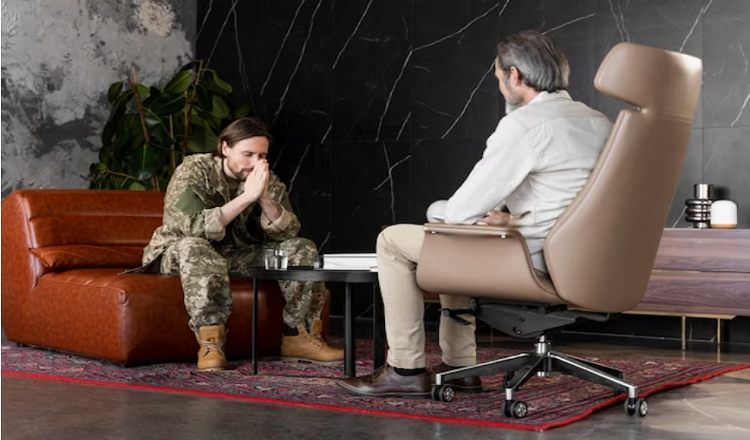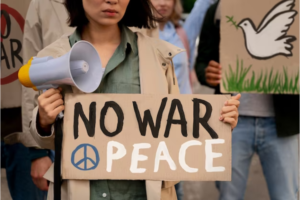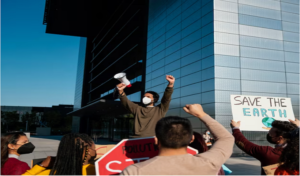Examining the psychological effects of war on soldiers

War is terrible and often upsetting for everyone involved, but soldiers may be the ones who feel its effects the most. Over the years, there has been a lot of study and worry about how war affects the minds of American soldiers. From Post-Traumatic Stress Disorder (PTSD) to depression and anxiety, being in battle can have a huge and long-lasting effect on your mental health. In this piece, we’ll look at the different psychological effects of war on US soldiers and talk about some of the most important things that lead to them.
Even though war has always been a part of human history, it has only been lately that its effects on the mental health of soldiers have been studied in depth. This is an important topic to look into because soldiers are often the ones who experience the most trauma from war, and their mental health is important to their general health and ability to function in civilian life after they leave the military. In this piece, we’ll talk about how common PTSD is among soldiers, what causes it, and how it affects their mental health and daily lives. By looking at these problems, we hope to show how war affects the minds of American soldiers and bring attention to the need for more support and resources to help them deal with the trauma they have been through.
How often troops have PTSD
The number of soldiers who have PTSD after being in battle is a big worry in the US. Recent data show that about 20% of soldiers who served in Iraq and Afghanistan have had PTSD. Veterans of other wars, like Vietnam and the Gulf War, also often have this disease.
Soldiers can get PTSD for a number of reasons, such as being exposed to trauma, being in intense battle situations, or already having a mental health problem. PTSD can cause a lot of different things, such as flashbacks, nightmares, anxiety, and sadness. Soldiers who have been through a traumatic event must get help and treatment for PTSD to lessen the effects of this painful condition. By making more people aware of how common PTSD is in soldiers and what it feels like, we can work towards giving those who have served their country better help and tools.
Things that change how war affects people’s minds
There are many things that can change how war affects the minds of American fighters. The length and intensity of combat are also big factors. Soldiers who are in combat for a long time or in situations that are very dangerous are more likely to get PTSD and other mental health problems. Exposure to trauma, such as seeing fellow soldiers get hurt or killed, can also be a big role.
Social support is another important thing that helps troops deal with the mental effects of war. Soldiers are less likely to have long-term mental health problems if they have a good support system. This could come from family, friends, or their military unit. Soldiers can also deal with the stress and trauma of battle by using ways to cope, such as exercise, therapy, or mindfulness practises. By knowing the different things that affect how war affects troops’ minds, we can help and care for those who have served our country better.
How troops deal with PTSD
The effects of PTSD on US troops can be very bad and last a long time. This condition can hurt a soldier’s mental health, relationships, work, and general quality of life. Anxiety, sadness, and trouble sleeping can make it hard for a soldier to go about their daily life.
Unfortunately, the stigma that comes with mental health in the military can stop people with PTSD from getting help. This can cause PTSD that doesn’t get addressed, which can lead to serious problems like drug abuse and suicide. It is important to make more people aware of how PTSD affects troops and to encourage people in the military to seek help and support for mental health problems. By getting rid of the stigma around mental health, we can get soldiers with PTSD and other mental health conditions to get the help and care they need to get better.
There are ways to help troops with PTSD.
In the USA, troops with PTSD can choose from a number of ways to get help. Therapy is a popular way to help, and many people find that treatments like Cognitive Behavioural Therapy (CBT) and Eye Movement Desensitisation and Reprocessing (EMDR) work well. PTSD symptoms can also be helped by taking medicines like antidepressants and antianxiety drugs.
Alternative treatments for PTSD like yoga, meditation, and awareness are also becoming more popular. But soldiers often have trouble getting mental health care because of things like stigma, long wait times, and a lack of funding. The military is trying to deal with these problems by adding more mental health tools and encouraging people to get help when they have mental health problems. We can help soldiers with PTSD get better and improve their quality of life by giving them treatment choices that work and are easy to get.
There are ways to help troops with PTSD.
Social support is important for troops with PTSD, and both the military and organisations for veterans know this. The military has many ways to help, such as chaplain programmes, Military OneSource, and the National Centre for Post-Traumatic Stress Disorder. Soldiers and their families can get counselling, support groups, and educational tools from these places. soldiers’ groups like the Veterans of Foreign Wars and the American Legion also help soldiers with PTSD with peer support groups, counselling services, and money.
Along with these official support systems, family and friends can also help soldiers with PTSD in important ways. This support can come in the form of emotional help, help with day-to-day tasks, and encouragement to get help when required. By giving troops with PTSD a variety of ways to get help, they can get the care and support they need to get better and do well.
Conclusion
In conclusion, the psychological effects of war on US soldiers are very serious and can have long-lasting effects on their mental health, relationships, and general quality of life. Post-Traumatic Stress Disorder (PTSD) is common in soldiers who have been in battle, and it can be caused by a number of things.
It is important to know the different ways that troops with PTSD can get help, such as through therapy, medication, and social support. The military and organisations for veterans have many ways to help soldiers on their road to healing. But there is still a stigma in the military about mental health, which can stop people from getting the help they need.
To help troops with PTSD, we need to keep making mental health care a top priority in the military and get rid of the stigma around mental health problems. More study is needed to learn more about how war affects soldiers’ minds and to come up with better ways to help them. As a society, we owe it to our soldiers to make sure they have the care and help they need to deal with the problems they face after war.
Read More You May Like:
- Delving into the rise of civil conflicts and its implications
- Defining international laws surrounding war and its effect on nations
- Analyzing the role of the UN in promoting peace and preventing conflicts
- Understanding the consequences of war on society
- The impact of modern technology on modern warfare








